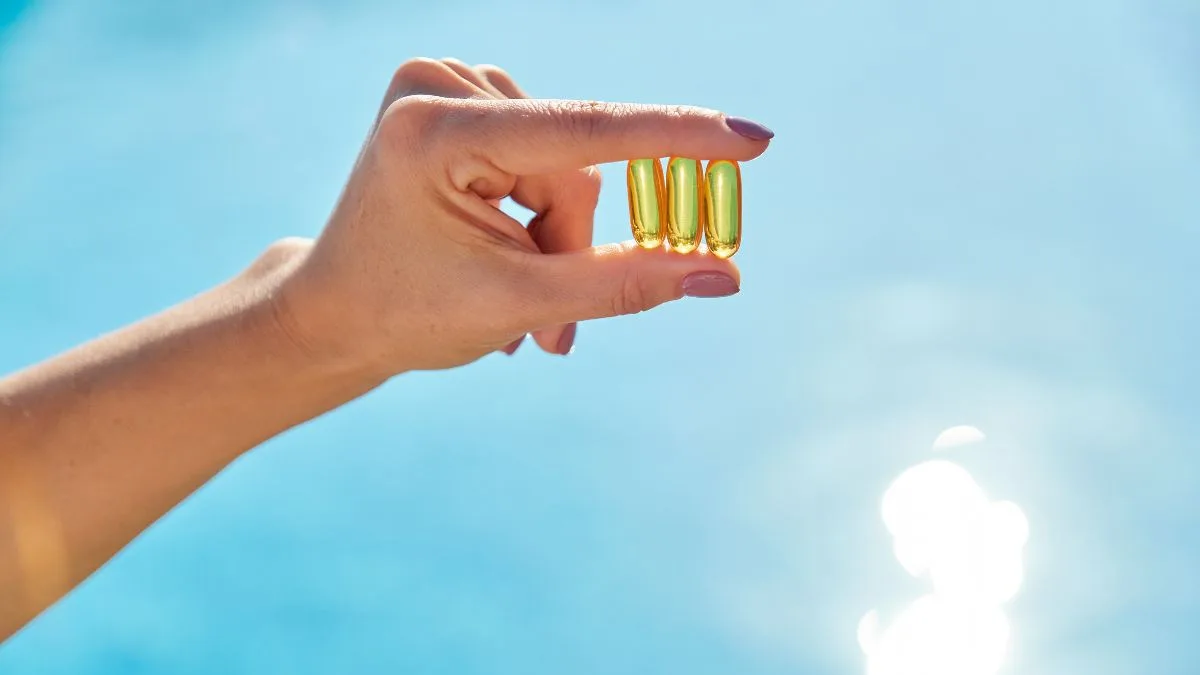✪ At a Glance: New research shows vitamin D3 supplements may slow biological aging by preserving telomere length equivalent to three years.
Introduction
What if I told you that a simple vitamin D supplement could potentially slow down your biological clock?
A groundbreaking study published in The American Journal of Clinical Nutrition reveals that vitamin D3 supplementation may help preserve telomere length – the protective caps on our chromosomes that naturally shorten as we age.
Let’s dive deep into this fascinating research and explore what it means for your anti-aging strategy.
What Did This Groundbreaking Research Actually Find?
The VITAL study stands as one of the most comprehensive investigations into vitamin D’s anti-aging effects to date.
Researchers from Mass General Brigham and the Medical College of Georgia followed over 25,000 participants for four years.
The study included U.S. women aged 55 and older and men aged 50 and older who received either a placebo or 2,000 IU of vitamin D3 daily along with one gram of omega-3 fatty acids.
Scientists measured telomere length at three critical points: baseline, after two years, and after four years of supplementation.
The results were remarkable – participants taking vitamin D3 experienced significantly less telomere shortening compared to those on placebo, with the protective effect equivalent to preserving about three years’ worth of telomere health.
✪ Fun Fact: This is the first large-scale randomized trial to demonstrate vitamin D’s protective effect on telomeres.
Why Are Telomeres So Important for Aging?
Think of telomeres as the plastic tips on shoelaces – they protect the important stuff from fraying.
These protective caps shield our DNA from damage during cell division, acting as a buffer against genetic deterioration.
As we age, telomeres naturally shorten with each cell division, and this process directly correlates with various age-related diseases.
When telomeres become critically short, cells can no longer divide properly and either die or become inactive – a process called cellular senescence.
This cellular dysfunction contributes to cancer, heart disease, cognitive decline, and other conditions we associate with aging, making telomere preservation a key target for longevity interventions.
✪ Note: Shorter telomeres are linked to increased risk of premature death and age-related diseases.
How Does Vitamin D Protect Against Cellular Aging?
Vitamin D’s protective mechanism goes beyond just bone health and immunity.
The vitamin acts at the cellular level by reducing inflammation, which is a major driver of telomere shortening and cellular damage.
Dr. JoAnn Manson, the study’s principal investigator, noted that “VITAL had also shown benefits of vitamin D in reducing inflammation and lowering risks of selected chronic diseases of aging, such as advanced cancer and autoimmune disease.”
The 2,000 IU daily dose used in the study appears to be the sweet spot for achieving these cellular protective effects without risking toxicity.
In my opinion, this dosage makes sense because it’s high enough to achieve meaningful blood levels but conservative enough for long-term safety – something many people struggle to balance when choosing vitamin D supplements.
✪ Pro Tip: The study used vitamin D3 (cholecalciferol), which is more effective than D2 for raising blood levels.
What About Omega-3s – Did They Show Similar Benefits?
Interestingly, the omega-3 supplementation in this study did not show significant effects on telomere length.
This finding surprised many researchers, given omega-3s’ well-established anti-inflammatory properties and previous smaller studies suggesting telomere benefits.
The participants received one gram of omega-3 fatty acids daily, which is a moderate dose compared to what some other studies have used.
This doesn’t mean omega-3s are useless for aging – they still provide numerous cardiovascular and brain health benefits that weren’t measured in this particular analysis.
However, it does suggest that vitamin D3 may be more specifically targeted for telomere preservation compared to omega-3 fatty acids.
✪ Note: This study doesn’t diminish omega-3s’ other proven health benefits beyond telomere length.
Should You Start Taking Vitamin D for Anti-Aging?
Before rushing to the supplement store, consider that this research represents promising but preliminary evidence.
The study’s authors themselves note that more research is needed to fully understand vitamin D’s long-term impact on health and aging outcomes.
However, the 2,000 IU daily dose used in this study is within safe limits for most adults and aligns with many current recommendations for vitamin D sufficiency.
In my opinion, the risk-benefit ratio strongly favors supplementation for most people, especially considering that vitamin D deficiency is widespread and the potential benefits extend beyond just telomere preservation.
I’d recommend getting your vitamin D blood level tested first, then working with a healthcare provider to determine the appropriate dose – some people may need more or less than 2,000 IU depending on their baseline levels, body weight, and absorption factors.
✪ Pro Tip: Take vitamin D3 with a fat-containing meal to maximize absorption and effectiveness.
The Bottom Line
This landmark study provides the strongest evidence yet that vitamin D3 supplementation may slow biological aging by preserving telomere length.
What’s your take on adding vitamin D to your daily routine – are you ready to explore this potential anti-aging strategy?
References
At NutritionCrown, we use quality and credible sources to ensure our content is accurate and trustworthy. Below are the sources referenced in creating this article:
- Harvard Gazette: Vitamin D supplements may slow biological aging
- Mass General Brigham: Vitamin D supplements show signs of protection against biological aging
- Neuroscience News: Vitamin D Supplements May Slow Aging by Protecting Telomeres
- PubMed: Vitamin D and omega-3 supplementation and telomere length
- Everyday Health: Vitamin D May Slow Biological Aging, Study Finds





